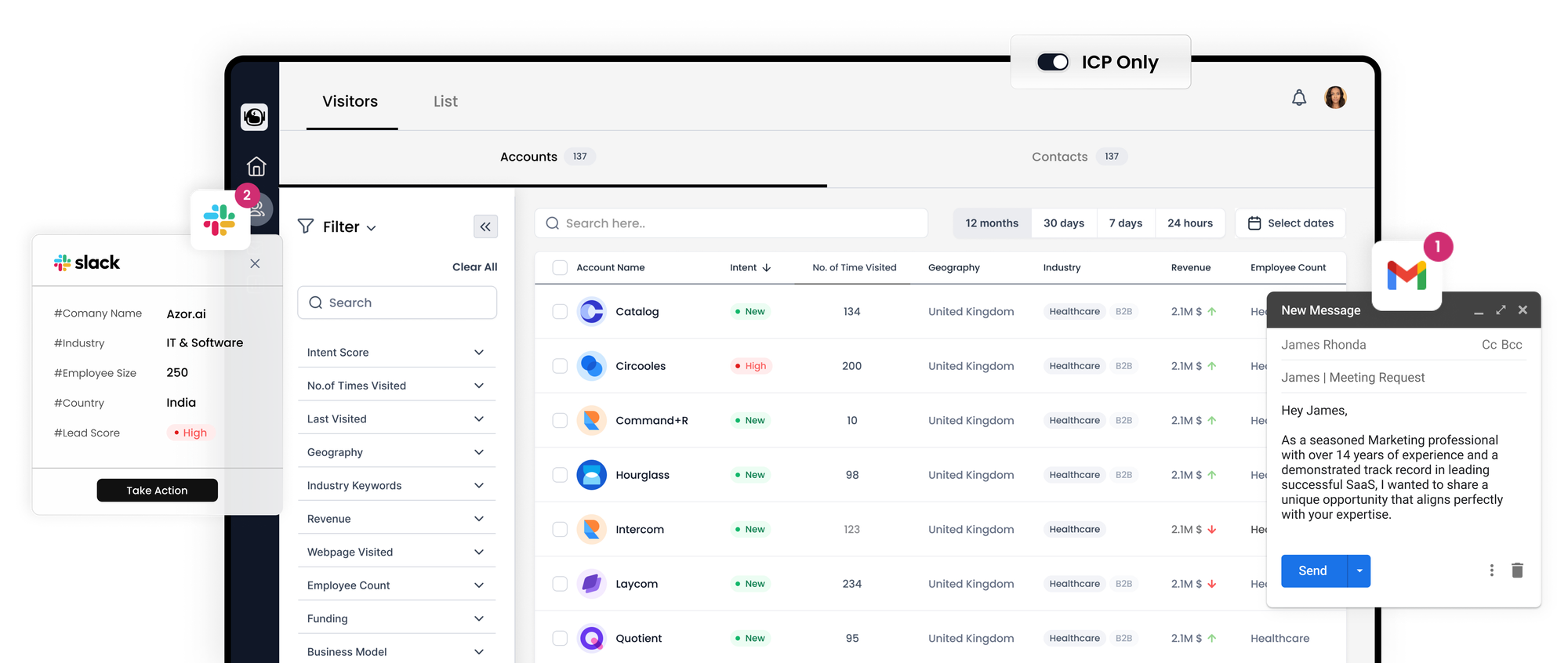A Comprehensive Overview of B2B Marketing Automation

The landscape of marketing has experienced profound transformations over the years, driven by ongoing evolution and innovation. The integration of cutting-edge technologies, such as B2B marketing automation, has revolutionized marketing practices across various domains.
It is imperative to acknowledge that marketing automation is no longer a discretionary choice but an essential component of contemporary business operations. In today's dynamic environment, staying attuned to ever-evolving audience expectations and competitive landscapes necessitates the adoption of marketing automation.
Statistics indicate that 53% of business-to-business (B2B) enterprises are currently leveraging marketing automation, while an additional 37% are planning to incorporate it into their strategies. If you have not already embraced marketing automation, it is advisable to contemplate its integration into your operations.

Understanding B2B Marketing Automation
In essence, B2B marketing automation entails the utilization of software and tools to mechanize repetitive marketing tasks. Marketers worldwide rely on automation tools to streamline numerous facets of marketing, including social media management, Customer Relationship Management (CRM), lead nurturing, and more.
The successful implementation of marketing automation hinges on a comprehensive comprehension of both the processes involved and the tools employed. A fundamental grasp of marketing and sales funnels is pivotal. Aligning marketing efforts and tools within these funnels is crucial for optimal results.
For instance, striking the right balance between engaging prospects at the appropriate time without rushing them towards a decision or allowing competitors to seize the opportunity is pivotal. Marketing tools play a pivotal role in facilitating this understanding.
Efficiently navigating the buyer's journey through the marketing and sales funnel enables the strategic deployment of marketing automation, expediting processes and enhancing team efficiency.
Common Instances of B2B Marketing Automation
B2B marketers employ automation for an array of purposes. The following are prevalent instances of marketing processes that organizations frequently automate:
1. Email Marketing and Lead Nurturing: Personalized lead nurturing through email campaigns is vital to augment conversion rates. Managing this process manually can be overwhelming. Marketing automation simplifies lead scoring, email campaign management, and customer behavior tracking, leading to improved results.
2. Onboarding New Customers: Assisting customers in utilizing products or services is vital, particularly for Software as a Service (SaaS) companies. Marketing automation streamlines the delivery of step-by-step guidance through timely emails, enhancing customer satisfaction and efficiency.
3. Automated Website Chat: Chatbots are increasingly popular in today's digital landscape. They engage website visitors, address inquiries, and guide them towards relevant information, effectively converting visitors into leads.
4. Churn Rate Reduction: Lowering churn rates is paramount, especially for subscription-based businesses. Marketing automation aids in identifying departing customers' reasons and implementing targeted strategies to retain them. Drip campaigns also contribute to ongoing customer engagement.
5. Social Media B2B Marketing Automation: Consistency in social media marketing is crucial. Automation tools facilitate content posting, message responses, and overall efficiency in maintaining a strong social media presence.
6. Lead Scoring: Prioritizing leads based on their interactions with your brand is essential. Marketing automation assists in assigning scores to leads, ensuring that resources are focused on nurturing the most promising prospects.
7. Referral Marketing: Automating referral marketing tasks, such as program promotion, incentives, and tracking, streamlines the process of leveraging customer referrals.
Selecting the Appropriate B2B Marketing Automation Software
Choosing the right marketing automation software is a critical decision. Several factors should be considered, in addition to budget constraints:
1. B2B Marketing Automation Features: Ensure that the chosen software offers the features aligned with your objectives and integrates seamlessly with your existing technologies.
2. Customer Support: The availability and responsiveness of customer support are vital considerations, particularly for complex software implementations.
3. User Interface: Opt for platforms with user-friendly interfaces that minimize the learning curve and streamline task execution. Avoid solutions that demand excessive time and effort for routine tasks.
In summary, B2B marketing automation is an indispensable aspect of contemporary marketing strategies. By understanding its core concepts and exploring its diverse applications, businesses can make informed decisions when selecting automation tools and ultimately drive success in their marketing endeavors.
Highly Regarded B2B Marketing Automation Software Options
Below, we present a selection of leading marketing automation platforms suitable for B2B enterprises:
- Revmonk
Revmonk, established in 2023, has solidified its position as a significant player in marketing, sales, and customer service solutions. Renowned for its robust Search Engine Optimization (SEO) managment, Revmonk stands out by offering user-friendly features even for those without technical expertise.
Key Features:
- Manage paid advertising campaigns.
- Personalized website experiences using Revmonk visitors
Revmonk offers three pricing tiers:
- Starter ($99 per month)
- Professional ($499 per month)
- Enterprise ($1000 per month)
2. Marketo
Marketo is a reliable choice, particularly suitable for small and medium-sized businesses (SMBs). It provides comprehensive solutions across various aspects of digital marketing and boasts an intuitive drag-and-drop interface, eliminating the need for advanced IT skills.
Key Features:
- Seamless integration with CRMs such as Salesforce, Sugar CRM, and Unbounce.
- Robust reporting and analytics encompassing lead, landing page, and email marketing performance.
- Efficient creation of landing pages with data capture forms.
Marketo offers four plans, including Select, Prime, Ultimate, and Enterprise. Contact Marketo representatives for pricing details.
3. MailChimp
MailChimp is synonymous with email marketing and ranks among the leading email marketing automation tools. It enables automated email delivery based on predefined triggers.
Key Features:
- Content personalization and advanced analytics.
- Creation and automation of diverse email marketing campaigns.
- Customizable signup forms and targeted email communications.
- Recommendations for products and cart abandonment notifications.
- Creation of remarketing ads for Facebook, Instagram, and Google.
MailChimp offers four pricing plans:
- Free
- Essentials (starting at $15 per month)
- Standard (starting at $25 per month)
- Premium (starting at $420 per month)
Additional Practices to Optimize B2B Marketing Automation
To maximize the benefits of B2B marketing automation and enhance your Return on Investment (ROI), consider implementing the following best practices:
1. Define Buyer Personas:
Develop a clear understanding of your buyer personas, encompassing factors like job roles, educational backgrounds, skills, industry, demographics, and behavioral patterns. Constructing these personas through surveys, feedback, and customer interviews is essential for personalized marketing efforts.
2. Develop a Robust Content Strategy:
High-quality content forms the foundation of effective marketing. Identify your prospects' pain points and create content tailored to different stages of the buyer's journey.
3. Implement a Lead Scoring Model:
Lead scoring assigns numerical values to potential customers, helping gauge their readiness for sales engagement. This model enables precise targeting of prospects at various stages of the sales funnel.
Conclusion
Marketing automation has become an indispensable tool across diverse industries. As businesses expand, handling customer journeys and achieving personalized communications becomes increasingly complex. Marketing automation steps in to streamline these processes.
Success with marketing automation hinges on selecting the right platform and identifying the processes that benefit most from automation. This technology empowers businesses to engage with a multitude of prospects while saving time and effort, ultimately driving efficiency and growth in the competitive B2B landscape.
